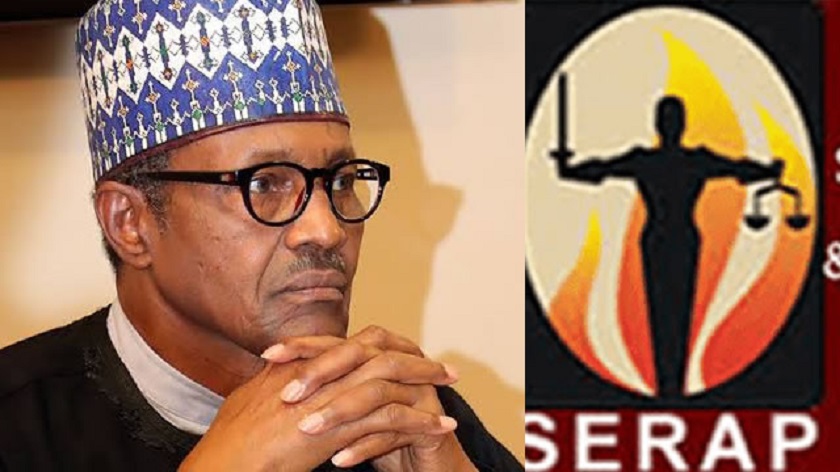Widespread and systemic corruption in ministries, departments and agencies (MDAs) especially in the education, health and water sectors is deepening poverty among millions of Nigerians.
This is contained in a 61-page report launched Thursday at the Radisson Blu Hotel, Ikeja, Lagos, by the Socio-Economic Rights and Accountability Project (SERAP) and is titled: The Ignored Pandemic: How Corruption in the Health, Education and Water Sectors is Plunging Nigerians further into Poverty.
According to the report, “Budget fraud, procurement fraud, embezzlement of funds among other illegal actions, lead to failure in the delivery of services including education, water and health.
READ ALSO: 2023 presidency: Diaspora group urges collective support for Tinubu
The report presented to the media by Dr. Elijah Okebukola, discloses that “61% of people living in poor neighbourhoods ranged between having no formal education and senior secondary education.”
The report shows that, “Corruption contributes to poverty and consequential suffering of people living in poor neighbourhoods. 57.30% of people living in poor neighbourhoods were youth of between 18 and 35 years old. Poor people are victims and not perpetrators of corruption in the health, education and water sectors.”
It urges President Muhammadu Buhari to “promptly propose an executive bill to amend the Nigerian Constitution of 1999 [as amended] to recognize Nigerians’ socio-economic rights, including the rights to an adequate standard of living, education, quality healthcare, and clean water as legally enforceable human rights”
READ ALSO: Twitter displays double standard in Afghanistan; SERAP, Falana, Amnesty, rights lawyers keep mum
The report also urges the Buhari administration to “ratify the Optional Protocol to the International Covenant on Economic, Social and Cultural Rights, which allows individuals and groups whose socio-economic rights are violated to access international accountability mechanisms in the form of the Committee on Economic, Social and Cultural Rights.”
The report read in part: “93.20% of people living in poor neighbourhoods were younger than 60 years old. People living in poverty were mostly self-employed (57.20%) or unemployed (20.10%) and were living in extreme poverty. Those who were unemployed outnumbered the combined number of those who worked for the government (8.30%) and private sector (7.20%).”
“48.90% of people living in poverty, that is, more than 27,453,154 (twenty-seven million, four hundred and fifty-three thousand, one hundred and fifty-four) earned less than 100 thousand Naira per annum. 27.9 per cent, that is more than 15,663,456 (fifteen million, six hundred and sixty-three thousand, four hundred and fifty-six) earned between 100 and 200 thousand Naira per annum.”

 Health & Fitness3 days ago
Health & Fitness3 days ago
 Featured7 days ago
Featured7 days ago
 Education1 week ago
Education1 week ago
 Business1 week ago
Business1 week ago
 Aviation5 days ago
Aviation5 days ago
 Business7 days ago
Business7 days ago
 Crime1 week ago
Crime1 week ago
 News6 days ago
News6 days ago

